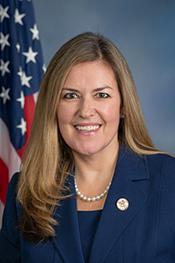0
Paycheck Fairness Act
3/8/2024, 8:15 AM
Summary of Bill HR 17
One of the key provisions of the Paycheck Fairness Act is to prohibit employers from retaliating against employees who discuss their wages with their colleagues. This is intended to promote pay transparency and empower women to advocate for fair compensation.
Additionally, the bill requires employers to prove that pay disparities are based on legitimate factors such as education, experience, or performance, rather than gender. It also increases penalties for employers who violate equal pay laws and provides resources for women to negotiate for higher wages. Overall, the Paycheck Fairness Act aims to close the gender pay gap and ensure that women are paid fairly for their work. It has received support from women's rights organizations and advocates for gender equality, but has faced opposition from some business groups who argue that it could lead to frivolous lawsuits.
Congressional Summary of HR 17
Paycheck Fairness Act
This bill addresses wage discrimination on the basis of sex, which is defined to include pregnancy, sexual orientation, gender identity, and sex characteristics.
Specifically, it limits an employer's defense that a pay differential is based on a factor other than sex to only bona fide job-related factors in wage discrimination claims, enhances nonretaliation prohibitions, and makes it unlawful to require an employee to sign a contract or waiver prohibiting the employee from disclosing information about the employee's wages. The bill also increases civil penalties for violations of equal pay provisions.
Additionally, the Equal Employment Opportunity Commission (EEOC) and the Office of Federal Contract Compliance Programs must train EEOC employees and other affected parties on wage discrimination.
The bill directs the Department of Labor to (1) establish and carry out a grant program to provide training in negotiation skills related to compensation and equitable working conditions, (2) conduct studies to eliminate pay disparities between men and women, and (3) make available information on wage discrimination to assist the public in understanding and addressing such discrimination.
The bill establishes the National Award for Pay Equity in the Workplace for an employer who has made a substantial effort to eliminate pay disparities between men and women. It also establishes the National Equal Pay Enforcement Task Force to address compliance, public education, and enforcement of equal pay laws.
Finally, the bill requires the EEOC to issue regulations for collecting from employers compensation and other employment data according to the sex, race, and national origin of employees for use in enforcing laws prohibiting pay discrimination.





